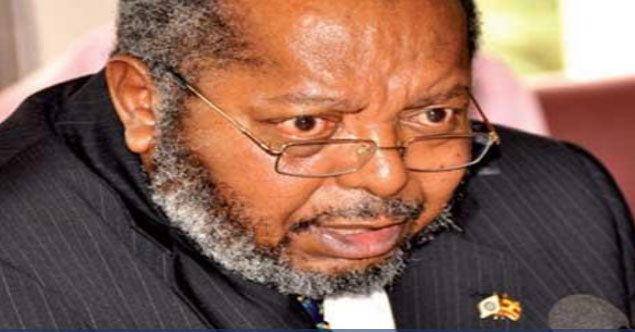
Kampala, Uganda| CSBAG| Every time a government official comes out to explain why the economy is poorly performing, they cite external and natural factors.
These range from slow growth in China, to fall in commodity prices, tight financing conditions in Europe, and geo-political events such as Brexit and U.S politics. Other factors include: South Sudan political crisis and drought conditions that affected agriculture.
Listening to government, therefore, gives the impression that the economic malaise we are facing today is wholly on account of factors beyond the control by our policymakers. Could Uganda’s policymakers be hiding behind what policy analysts call “punctuated-equilibrium theory” to evade responsibility?
If indeed all the factors troubling our economy are beyond what policymakers can control, then aren’t they proving to us that all along Uganda’s economy has been relying on good luck? In March, I Wrote, in these very pages suggesting that we could be paying the price for over-relying on good luck. When we ran out of the luck, rains stopped coming on time; China stopped growing; South Sudan went to war; and DRC learned how to manage its affairs better.
Policymakers not in charge
When luck abandoned us donors became broke and closed the taps; commodity prices fell; and our relatives ‘sweeping’ abroad had very little to send home due to the economic meltdown, particularly in the Eurozone.
So the question we should perhaps ask is; what would the policymakers have done to remain in charge of the country’s economic fortunes? Simple: they should have remained in charge of the fundamentals as well as expectations that respectively affect long run and short run economic performance.
Avoiding Contagion
Countries such as Ethiopia and Rwanda did exactly that. Although they adopted the market reforms proposed by the Bretton Woods institutions, they quickly followed them up with second-generation reforms – a set of measures intended to enable the country to attain, in a sustained way, high-quality growth.
So what would those in charge of our economy perhaps have done?
First, if I were in charge of Bank of Uganda, I would not have maintained a monetary policy that controls supply-side generated inflation by mopping out money. I would have formed synergies with government to deal with the causes of the inflation – low production and productivity in all sectors.
Discouraging savers
I also would not have maintained a policy that allows banks to pay savers an annual average of 3% and charge borrowers (of the same savings) an average of 23% for two decades. I would have interrogated the possibility that the banking sector am superintending over could be suffering a ‘principal-agent problem’.
What else would explain the fact that over the past 20 years the lending rates have been more volatile than the savings rates? This is a clear sign that the banks hedge themselves against risks such as inflation and exchange deprecation, but don’t do the same for their savers.
As result, people found other ways of saving away from banks – constructing apartments and other real estates (dead capital), buying land or cattle (tied capital), or converting their money into U.S. dollars which they keep under mattresses to hedge such risks. This is the very reason lending rates are sticky downward, since banks have limited and risky credit (demand deposits).
Source: CSBAG newsletter
****
This article was written by Ramathan Ggoobi and its excerpts were taken from Sunrise Newspaper, 2/6/ 2017
Csbag Budget News 266th Edition-final by The Independent Magazine on Scribd
 The Independent Uganda: You get the Truth we Pay the Price
The Independent Uganda: You get the Truth we Pay the Price


